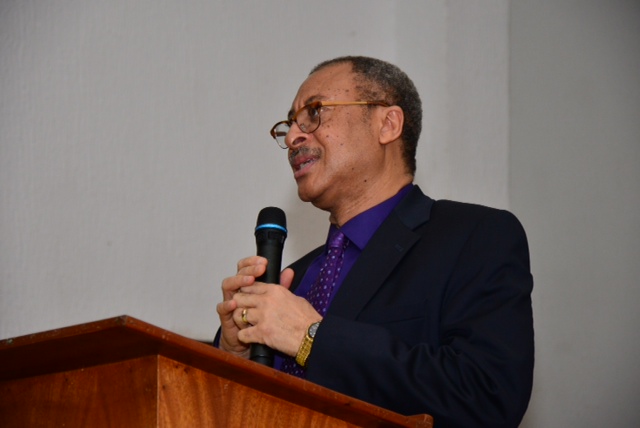- After Recession, Focus on Non-oil Sector, Utomi, Others Advise FG
A professor of Political Economics, Pat Utomi, has advised the Federal Government to come up with specific and deliberate policies that will enhance the growth of the non-oil sector in order to enable the country to sustain its exit from recession.
In its second quarter Gross Domestic Product report released on Tuesday, the National Bureau of Statistics data showed that the Nigerian economy recorded the first positive growth in the last six quarters in the second quarter of this year, and consequently exited recession.
Utomi, who noted that the 0.55 per cent GDP growth rate recorded in the second quarter was low and tepid relative to population growth, stressed that policymakers must seek to grow the economy through the non-oil sector.
“There is no full consciousness that we are approaching the end of the oil economy. For some, all they have known in the last 40 years is the oil economy. This is the time to look away from oil and grow our economy,” he added.
Outlining ways to enhance economic growth, the former presidential aspirant said there must be deliberate efforts to cut down the size of government, while policymakers must also make significant efforts to stimulate the private sector to pay taxes that would be used to boost growth.
Utomi emphasised the need to promote policies that would support the private sector to grow, adding that policymakers often make certain policies that were structured to prevent the private sector from making profit.
He added, “I have spoken with a lot of investors in the oil and gas sector. They said the problems policymakers have created are 10 times more than the decline in the price and output of oil.
“This means what we all need education, rather than see things that they are attacking us.”
The founder of the Centre for Values in Leadership said there was a need for the government to unleash entrepreneurship in sectors of the economy that could create jobs and enhance economic growth.
He stated that the agriculture, manufacturing and services sectors were significant and that the government needed to support players in these sectors and give them certain deliverables with specific timelines.
Utomi said, “I don’t want to talk about what I am doing in this sector, but I need to say that we need to adopt the principle of latent comparative advantage in these sectors. Take agriculture for example, we need to look at how we can combine agriculture with technology and manufacturing. For example, we can pick an agriculture produce where we have comparative advantage as a country, and see how we can produce it to meet local demand and then begin to export.
“The same thing we do in agriculture, we can do in manufacturing and services sector. Look at our airports in the services sector, we can make Nigeria a tourist destination. For example, what does The Gambia has that Nigeria does not in order to attract tourists?”
A professor of Economics at the University of Uyo, Leo Ukpong, while describing the economic recovery as weak, maintained that policymakers must seek to make manufacturing and agriculture to drive economic growth.
“We cannot expect any growth that is based on the oil sector to be sustainable. We need to seek to make the manufacturing and agricultural sectors to drive our growth,” he added.
A professor of Economics at the Olabisi Onabanjo University, Sherriffdeen Tella, said the Federal Government must ensure stability in oil production in the Niger Delta, noting that any disruption would affect the economy.
He advised the Central Bank of Nigeria to ensure that the naira would not depreciate, while efforts must be made to bring down interest rate in order to free up capital for the manufacturing and other sectors to grow.

 Forex2 weeks ago
Forex2 weeks ago


 Naira1 week ago
Naira1 week ago
 Naira4 weeks ago
Naira4 weeks ago
 Company News4 weeks ago
Company News4 weeks ago
 Billionaire Watch1 week ago
Billionaire Watch1 week ago




 Naira2 weeks ago
Naira2 weeks ago




 Naira1 week ago
Naira1 week ago




 Naira3 weeks ago
Naira3 weeks ago





















